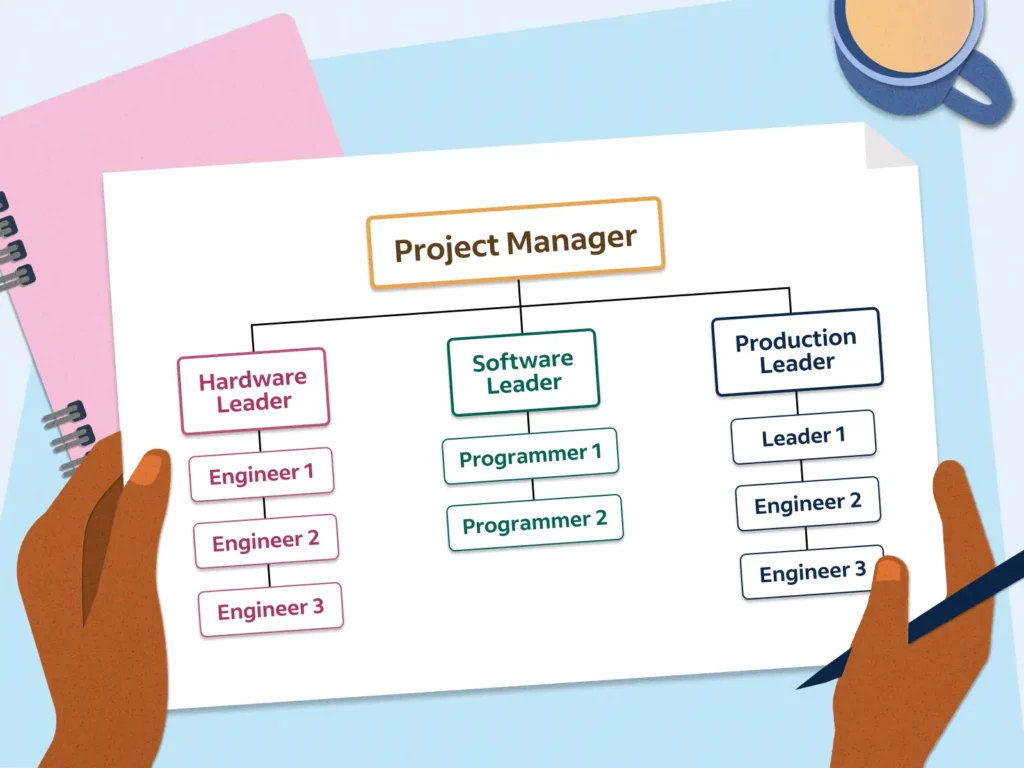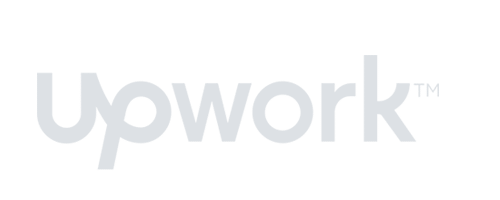Welcome to our comprehensive guide on startup project management approaches! Understanding the right ways to develop your business is critical if you are a startup founder or team member. In this post, we’ll look at the top five strategies for streamlining your projects. We cover everything from Agile to Lean, Waterfall to Kanban. Let’s determine the best fit for your startup’s project management requirements.
An Overview
In this section, we’ll give you a comprehensive yet easy-to-understand introduction. We’ll explore what startup project management is all about, why it’s crucial for success, and how it can help you navigate the dynamic startup landscape.
The concept of startup project management
Startup project management is concerned with effectively managing projects in a startup environment. It’s all about dealing with the specific obstacles that startups encounter, such as limited resources and rapid growth.
The emphasis in startup project management is on being flexible and responsive. This includes being able to respond swiftly to changes, prioritize work, and make decisions on the fly. Because startup ventures frequently require testing and iteration, the capacity to learn from mistakes and shift courses is essential.
The importance of effective project management for startups
Effective project management is critical for startups since it can determine their success or failure. It is crucial in ensuring that projects are on time, within budget, and with the appropriate quality.
To begin, excellent project management assists startups in remaining organized and focused. Startups require a disciplined approach to project management because to limited resources and tight timelines. Project management provides a framework for establishing defined goals, identifying deliverables, and developing an execution plan.

Excellent project management also enables startups to properly allocate resources. Startups frequently operate with limited money and people, making resource management critical. Startups can use project management to determine resource requirements, allocate tasks, and track progress to guarantee optimal resource allocation.
Furthermore, project management assists startups in mitigating risks and overcoming barriers. Startups can reduce the effect of unplanned events by recognizing potential risks early on and applying mitigation methods. Project managers are critical in analyzing risks, implementing contingency plans, and ensuring that projects remain on course in the face of adversity.
Additionally, good project management supports good communication and collaboration among startup teams. Startups are fast-paced settings that require quick decisions and seamless coordination. Project management provides transparency and ensures that team members are aligned and working toward the same goals by facilitating regular communication channels.
Finally, excellent project management provides a competitive advantage to startups. Startups can establish a competitive advantage in the market by effectively completing projects and continually exceeding client expectations. Well-managed initiatives allow firms to demonstrate their capabilities, attract investors, and secure future development prospects.
Startup project management right now
Startup project management will continue to improve in 2023, with an emphasis on efficiency, agility, and delivering successful outcomes. It is critical to use the correct approaches and practices to navigate the specific problems that startups encounter.
Project status reporting is a vital activity carried out by Project Management Offices (PMOs) in startups. This assists in keeping stakeholders up to date on project progress, hazards, and milestones. Another critical part of startup project management is portfolio management. It entails maintaining track of all active projects, as well as their priority and resource allocations. This enables entrepreneurs to properly manage their project portfolio and make educated decisions. Additionally, maintaining project management methods and templates is important to ensuring consistency and efficiency. This means developing and maintaining norms, protocols, and templates that may fit various projects inside the startup.
PMOs in startups are also responsible for facilitating project approval processes. This includes expediting the approvals procedure for project start-up, resource allocation, and budgeting. PMOs are critical in providing startups with project management expertise. They provide project teams with direction, support, and best practices to assist them overcome problems and achieve project objectives. Another important function of PMOs is to facilitate lessons learnt. Startups can learn from both successes and failures by capturing and spreading knowledge from previous projects. This allows them to improve their project management processes over time.
As for methodologies, waterfall, agile, scrum, and kanban are some of the common project management approaches. Waterfall works best for projects with well-defined needs and little changes. Agile is a collaborative and adaptive methodology that enables entrepreneurs to respond swiftly to developments. Scrum emphasizes cooperation, accountability, and frequent communication. Kanban project management provides a visual snapshot of project progress. We will talk more about this in the next section.
Recommended reading: Everything About Managing Website Projects
Top 5 Startup Project Management Methodologies
Effective project management is critical to the success of startups. Startups operate in fast-paced environments with limited resources, making it critical to have the correct project management practices in place. In this section, we will look at the top five startup project management approaches that can help startups streamline their operations and achieve success. Whether you’re a new business or looking to improve current project management processes, these strategies provide useful approaches to addressing the unique issues that startups encounter. Let’s get started and learn about the approaches that can help you take your startup project management to the next level.
Agile
Agile project management is a popular and successful way for managing startup projects. It places a premium on adaptability, cooperation, and iterative development.
Projects are divided into smaller iterations known as sprints in agile project management. This enables entrepreneurs to focus on delivering smaller project increments in a shorter time frame.
The capacity to adapt swiftly to changes and feedback is essential for agile project management. This methodology requires startups to collaborate extensively with their teams, stakeholders, and customers to ensure that the project meets their goals and expectations.
One of the primary benefits of agile project management is its adaptability. Startups can shift their goals, change the scope of their projects, and include new requirements as they develop.
The agile technique supports transparency and constant communication. Agile approaches require startups to attend regular meetings, such as daily stand-ups, to discuss progress, issues, and future steps.
Continuous improvement is a fundamental tenet of agile project management. Startups who use this methodology analyze and assess their processes on a regular basis, looking for chances for optimization and refinement.
Agile project management enables entrepreneurs to provide value to their consumers more frequently and earlier. Startups can get feedback and make improvements along the way by dividing the project down into smaller chunks, ensuring that the end product satisfies client expectations.
It is crucial to remember, however, that agile project management necessitates active participation and collaboration from all stakeholders. For successful project implementation, clear communication and a shared knowledge of the project goals are essential.
Recommended reading: The Role of .io Domains in the Startup Ecosystem
Lean
Lean project management is also another methodology primarily for startups that want to confirm assumptions and learn quickly. It prioritizes efficiency, waste minimization, and providing value to customers.
Startups prioritize producing a minimum viable product (MVP) – a version of the product with the basic functionality – in lean project management. This additionally enables startups to get their product in front of early consumers and collect feedback.

The cycle of build-measure-learn is central to lean project management. Startups create the MVP, track its performance and user comments, and learn from the data. This iterative process allows startups to make data-driven decisions while also continuously improving their offering.
The elimination of waste is also emphasized in lean project management. Startups strive to simplify procedures, eliminate superfluous stages, and concentrate solely on tasks that offer value to the project. This method optimizes resource use and shortens time to market.
The concept of continual improvement is another essential component of lean project management. Startups examine their processes and outcomes on a regular basis, looking for chances for improvement and innovation. Startups may remain ahead of the competition and create higher-quality goods by adopting a culture of continuous development.
Cross-functional communication and teamwork are additionally encouraged in lean project management. Startups bring together people from various jobs and departments to work toward a shared goal. Within the startup, this collaborative approach stimulates innovation and creativity.
Recommended reading: Fintech AI Risks: 8 AI Challenges Fintechs Still Struggle With
Waterfall
The waterfall project management methodology is a linear and sequential strategy that is often employed in the management of beginning projects. It entails finishing each phase of the project before going on to the next.
Startups using the waterfall model follow a predetermined plan from start to completion. Each process is conducted sequentially, such as requirements gathering, design, programming, testing, and deployment.
When the project needs are well-defined and unlikely to alter dramatically, this process also works well. Startups that use the waterfall process can establish a detailed project plan ahead of time, allowing for more accurate estimates of time, resources, and costs.
Generally, the waterfall methodology is a methodical approach to project management. Startups may set clear milestones and deliverables for each phase, making it easier to track progress and communicate with stakeholders.
The waterfall methodology also has the virtue of being simple. Startups can readily comprehend and follow the project phases’ sequential nature, making it easier to organize and coordinate activities.
One possible disadvantage of the waterfall methodology is its lack of flexibility. It can be difficult to make adjustments or add new needs after a phase has finished without revisiting earlier phases.
Startups adopting the waterfall process must undertake comprehensive planning and requirements collecting upfront to reduce this risk. Clear communication with stakeholders is essential for avoiding misconceptions and minimizing the need for changes during the project’s lifecycle.
Kanban
Kanban is a visual project management methodology that can considerably aid in the administration of startup projects. It is concerned with visualizing the workflow and increasing work efficiency.
Startups employ Kanban on a visual board with columns representing various stages of work, such as “To Do,” “In Progress,” and “Done.” Each task or work item is represented by a card, which advances across the columns as the work is completed.
Kanban’s visual nature gives startups a clear and real-time perspective of the project’s progress. It lets team members view which tasks are currently in process, which tasks have been finished, and which tasks are still outstanding.
Kanban encourages a pull-based work strategy. Tasks are pulled from the “To Do” column by individuals who have the capacity to work on them rather than assigned to team members. This helps to avoid bottlenecks and ensures that work is distributed evenly.
One of Kanban’s primary advantages is its ability to identify and manage work in progress (WIP) constraints. Startups can also limit the number of jobs that can be assigned to each column, minimizing overloading and enhancing overall workflow efficiency.
Kanban additionally promotes ongoing progress. Startups examine their workflow on a regular basis and make changes to improve productivity. Fine-tuning WIP limits, finding and eliminating process bottlenecks, and introducing improvements to improve overall flow can all be part of this.
Another benefit of Kanban is its adaptability. As priorities shift or new requirements arise, startups may easily add or delete tasks from the board. Because of their versatility, startups can adjust swiftly to changing market conditions and client needs.
Finally, Kanban relies heavily on collaboration. Team members contact on a frequent basis to update task status, discuss information, and handle any impediments. This fosters a culture of transparency and collaboration within the startup.
Scrum
Scrum is a famous project management style that is commonly employed in the management of startup projects. It emphasizes iterative and collaborative effort to produce solutions rapidly.
Startups in Scrum work in short iterations known as sprints. Sprints typically take a few weeks and involve the completion and delivery of a set of tasks. This iterative strategy allows entrepreneurs to respond to criticism and make changes as they go.
The Scrum team is made up of three important roles: product owner, scrum master, and development team. The product owner represents the stakeholders and ensures that the project satisfies their needs. The scrum master guides the team through the Scrum process and keeps them on track. The development team is in charge of the project’s actual implementation.
Scrum also places a premium on daily stand-up meetings, during which team members share progress, address difficulties, and plan for the day ahead. This promotes transparency and keeps everyone focused on the project’s objectives.
Furthermore, prioritization of work through a product backlog is a basic Scrum idea. The product backlog is a list of unfinished jobs or user stories. The team works together to estimate the effort required for each activity, and the product owner prioritizes them based on business value.
Scrum also encourages self-organization and cross-functional collaboration. The team selects how to execute the tasks each sprint, taking control of the process. This gives team members more influence and encourages collaboration.
Startups execute a sprint review and retrospective at the end of each sprint. The sprint review lets stakeholders provide input on completed work, while the retrospective allows for reflection on the process and identification of areas for improvement.
Recommended reading: An Overview of App Development Project Management
How You Can Learn From Us
Do you want to learn about startup project management from Designveloper, a prominent software development business in Vietnam? So, based on our expertise, we’ll give you an overview of how we work to deliver results.
Agile & Scrum
Agile and Scrum are our go-to strategies for startup project management at Designveloper. These techniques provide a structured project management procedure that stresses regular inspection and adaptation. We also develop a leadership attitude that encourages teamwork, self-organization, and accountability through Agile and Scrum.
Agile and Scrum, in addition to the leadership concept, encourage a set of engineering best practices. These processes allow us to produce high-quality software in a timely manner. We ensure that our software meets the highest standards by adhering to these best practices.
Furthermore, Agile and Scrum integrate our development strategy with our customers’ needs and our company’s ambitions. We focus on client satisfaction by incorporating their feedback and changing our development approach on a regular basis. This customer-centric approach enables us to provide products that actually exceed their expectations.
We have seen significant improvements in our project management since implementing Agile and Scrum. Even in dynamic and tough startup contexts, constant communication, teamwork, and iterative development cycles have helped us achieve greater results.
Pair-programming
In our agile software development approach, we place a strong priority on pair programming at Designveloper. Pair programming comprises two programmers working closely together at one workstation, and it has various advantages in terms of productivity and job happiness.

When two programmers collaborate, they can generate more alternative solutions to a problem than a single programmer working alone. This collaborative approach improves problem-solving and the overall quality of the program’s design.
The elimination of errors and the selection of suboptimal approaches is one of the most significant benefits of pair programming. Issues can be found and resolved more efficiently with two sets of eyes analyzing the code in real-time. As a result, the codebase is of higher quality, and the software product is more robust.
Furthermore, pair programming encourages team members to share their knowledge and grow their skills. Programmers can learn from one another, exchange ideas, and improve their competence through active cooperation and continual feedback. This dynamic learning environment promotes professional development and strengthens the team’s capabilities.
Pair programming is also beneficial to programmers’ morale and happiness. Working closely with a partner fosters a sense of camaraderie and support, which alleviates the sensation of isolation that might occur when performing individual programming jobs. This collaborative setting fosters a sense of success and fulfillment, which leads to higher levels of job satisfaction.
Pomodoro
We believe in the importance of good time management at Designveloper, and one way that has garnered broad appeal is the Pomodoro Technique. This time management strategy has been widely adopted by a variety of apps and websites that provide clocks and instructions, making it easily accessible to anyone trying to improve their productivity.
The Pomodoro Technique is related to other software design concepts such as timeboxing, iterative development, and incremental development. By dividing work into smaller, more manageable intervals known as “pomodoros,” this strategy encourages maximum focus and creative freshness.
The Pomodoro Technique is based on a simple yet efficient concept. You work on a task for a defined amount of time, often 25 minutes, followed by a 5-minute rest. After four pomodoros, you take a lengthier break, usually between 15 and 30 minutes. This methodical strategy helps you avoid burnout by keeping your mind bright and engaged throughout the workday.
Programmers can benefit from greater productivity and reduced mental tiredness by following the Pomodoro Technique. Breaking work into smaller intervals with regular breaks aids concentration and keeps the mind from becoming overwhelmed. As a result, programmers can finish tasks faster and with a fresh perspective.
The Pomodoro Technique is especially useful for startup project management, where time is often of the essence. Developers can make tremendous progress while maintaining a good work-life balance by defining explicit time restrictions and working in focused bursts. This method also promotes accountability and self-discipline because it challenges individuals to manage their time properly and adhere to the pomodoro intervals.
Weekly Workshops
We promote a cheerful and open-minded working environment at Designveloper, which is why we do weekly internal workshops. These workshops give a fantastic chance for all levels and functions of our staff to come together and share their knowledge and experiences.
Employees have the opportunity to exchange ideas, learn from one another, and acquire useful insights into various elements of our job during these workshops. It’s a platform where everyone’s opinion is appreciated, fostering a collaborative environment that encourages creativity and innovation.
These workshops not only improve employee connections and teamwork, but they also play an important role in increasing work efficiency. Our team members can learn new skills, discover creative solutions, and remain up to date on the latest industry trends by sharing their expertise and experiences. This ongoing education allows us to stay ahead in the fast-paced world of startup project management.
Our weekly classes are interactive and engaging, with a focus on practical learning. To ensure that everyone benefits from our team’s cumulative knowledge and expertise, we promote active involvement, debates, and hands-on activities.
Designveloper is able to maintain a dynamic and forward-thinking approach to startup project management by promoting a culture of constant learning and knowledge-sharing through these workshops. Our workers have the knowledge and abilities required to handle difficulties, generate achievement, and produce extraordinary results for our clients.
FURTHER READING: |
1. Web Development Cost: How Much for Your Business? |
2. Tips on How to Block Bad Bots and Protect Your Business |
3. How to Become a Certified Scrum Product Owner Step by Step? |
Conclusion
Effective project management approaches are critical in the fast-paced world of startups for attaining corporate goals, fulfilling customer expectations, and staying ahead of the competition. You can maximize resource usage, reduce risks, and achieve better project outcomes by implementing these approaches into your startup’s project management approach.
Designveloper, as a renowned software development business, is dedicated to sharing our skills and knowledge in startup project management. We think that by implementing the proper procedures and techniques, entrepreneurs may increase project success rates and generate long-term growth.
Consider following the top startup project management approaches laid out if you’re just starting your entrepreneurial adventure or looking to improve your current project management procedures. You may position your startup for success in today’s competitive business landscape by taking the proper approach and focusing on continual development.






















